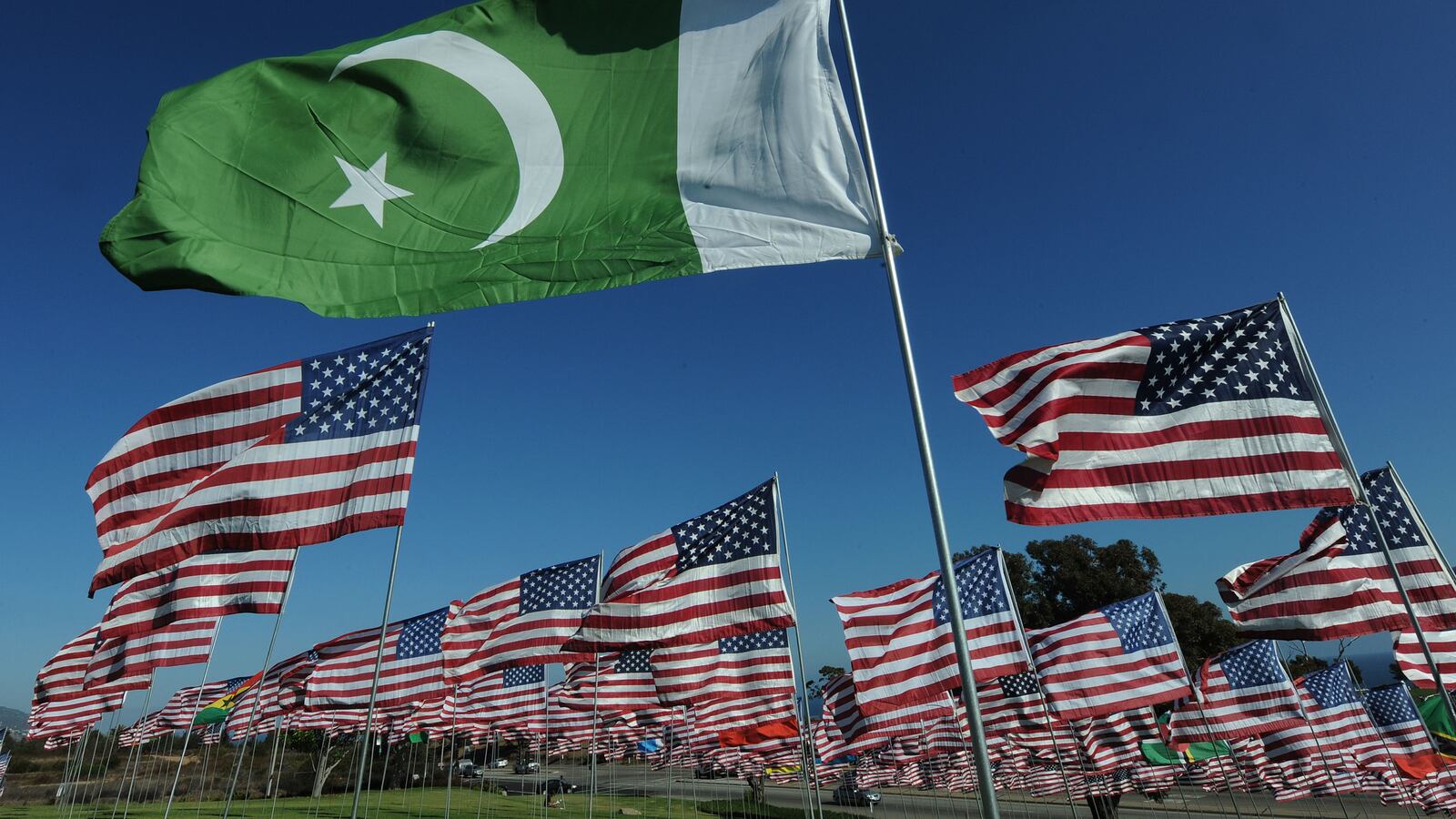As part of Donald Trump’s “Only White Lives Matter” 2020 campaign theme, his administration announced last Friday it would stop spending federal funds to teach racial sensitivity training to government employees because to Trump such programs are “divisive” and “un-American.” One facet of this new Trump administration policy mandates identifying all programs that teach about “white privilege” and “divert[ing] federal dollars away from these un-American propaganda training sessions.” The irony of Trump denying that white privilege exists is that he’s the poster child for it.
Here’s the truth: White privilege is real. It provides white people with tangible benefits that for the most part they take for granted. I know, because I used to have white privilege. But being of Arab heritage and Muslim, my white privilege was revoked in the years that followed the 9/11 terrorist attacks.
It’s often been said that “race is a social construct” in America. To that very point, noted African-American historian Nell Irvin Painter explained, “Race is an idea, not a fact.” Well, I’m the living, breathing example of that concept come to life. I was for all practical purposes a white person before 9/11. And as such, I had all the benefits encapsulated by the term white privilege.
But in the years that followed 9/11, I became a minority. At first, I resisted. I wanted to remain white because that was the only world I knew. True, I was of Arab heritage before 9/11 and my father was a Palestinian, Muslim immigrant. But I was raised to be white. In fact, my name Dean exemplifies that.
My father wanted to name me Saladin, after the Muslim warrior who liberated Jerusalem. My mother, though, who was born and raised in America by her immigrant Sicilian parents, had witnessed firsthand her parents’ struggles of trying to fit in when you were seen as an outsider. She fully understood something my immigrant father did not, that my life would be far more challenging being named Saladin. Consequently, she successfully pushed for me to have the very white name of Dean.
In the years after 9/11, I slowly began to embrace my new status to the point where “White Dean” was gone and in its place now is a proud and unapologetic minority member. That means I have firsthand experience of white privilege that I can share in the hope—naïve, perhaps—that I can reach some of the white people who become instantly defensive about even discussing that term.
“White privilege” is not easy to define. The genesis of the term is attributed to a groundbreaking 1998 essay by the anti-racism expert Dr. Peggy McIntosh, “White Privilege: Unpacking the Invisible Knapsack.” McIntosh wrote, “As a white person, I realized I had been taught about racism as something that puts others at a disadvantage, but had been taught not to see one of its corollary aspects, white privilege, which puts me at an advantage.” She then sets forth a list of examples of how white privilege manifests, from representations in the media to interactions with law enforcement.
But here’s my non-academic, personal and, I hope, practical definition of white privilege. It simply means being treated the way all of us in America should be. You’re not defined by the worst of your race or ethnicity. You’re never called on to denounce or apologize for the horrific conduct of extremists in your community. Politicians don’t openly demonize your community to score political points. You’re never profiled by law enforcement for your race, religion or ethnicity. Simply put, white privilege means you are defined by you, and you alone, in all aspects of our society.
So how have I personally felt the loss of white privilege? Let me count the ways.
In post-9/11 America, I and every other American Muslim are called on to denounce any terrorist attack by any Muslim, anywhere on the globe. I can’t tell you how many times I heard from primarily white people after 9/11, “Why don’t we hear Muslims in America denounce terrorism?!”
That’s why many of us do denounce the extremists, since we are keenly aware that the worst of our community can and will be used to define us. And worse, right-wing politicians will call for and implement policies based on these extreme examples. In contrast, white people don’t feel compelled to denounce the worst among them because they have no fear of being defined by these people or suffering tangible consequences if they don’t.
Here’s one small example. It was white men who perpetrated the October 2018 terrorist attack against the Tree of Life synagogue in Pittsburgh, killing 11, and the El Paso attack the following August, which left 22 dead, but no mainstream American politicians blamed white culture for those attacks and advocated policies targeting white people. But when, during the 2016 presidential campaign, a Muslim killed 14 people in the San Bernardino, California, terrorist attack, Trump responded by calling for a “total and complete shutdown of Muslims entering the United States.”
The benefits of white privilege span our entire society from more subtle examples such as depictions in movies and TV shows as always being the hero to dealing with law enforcement. For example, how many white people, when they get pulled over by the police, actually fear they will not survive that traffic stop? But speak to Black Americans and they will tell you that fear is real.
Maybe white privilege should be renamed as something more truly descriptive such as “Minority Disadvantage.” But let’s be 100 percent clear: there’s a benefit to being part of the white majority in America—despite Trump’s efforts to ignore it. And I can tell you firsthand that if Trump ever lost his white privilege, he would be tweeting non-stop about how unfair life is to him. I know what you’re thinking, he does that now and he’s a rich, white man born into wealth and is serving as President of the United States. That, too, is another example of Trump’s white privilege on display.






